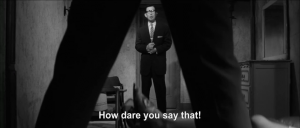Wednesday, April 12, 3:00 – 4:30 p.m.
Wieboldt 301N
Next Wednesday, Professor Theodore Hughes will join Professor Kyeong-Hee Choi’s seminar Korean Literature, Foreign Criticism as a guest speaker. Professor Hughes is Korea Foundation Associate Professor of Korean Studies in the Humanities at Columbia University. This is an open seminar, and those interested in attending are encouraged to RSVP with Professor Choi at kchoi@uchicago.edu.
Discussion will center on two short stories in conjunction with selected chapters from Professor Hughes’ book Literature and Film in Cold War South Korea: Freedom’s Frontier (Columbia University Press, 2014). Please find the readings in the above post. For password access, please e-mail murphya1@uchicago.edu.
This event is sponsored by the Committee on Korean Studies at the Center for East Asian Studies.



